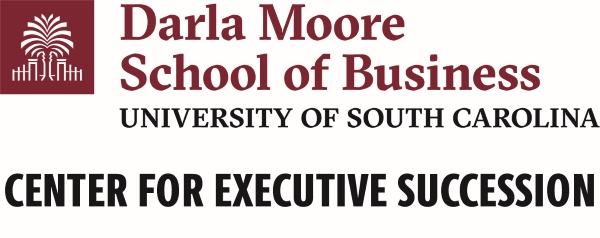The Current State of CEO Succession Planning Practices: Results of the 2022 HR@Moore Survey of CHROs
Document Type
Report
Abstract
The 2022 HR@Moore Survey of Chief Human Resource Officers (CHROs) received 106 CHRO respondents answering questions on a number of issues regarding the current state of CEO succession planning practices at the board, CEO, and CHRO level. CHROs report spending on average 11.3% of their time as a liaison to the boards of directors. Of the time spent with the board, CHROs report approximately 16.2% of the time is spent on CEO succession, while 12.8% of the time is spent on other C-suite executive succession planning. On average, this means that CHROs spend roughly 3.29% of their total time on succession planning related issues. This would translate to more than 1.6 weeks CHROs spend with the board related to executive succession. When it comes to selecting the new CEO, we asked CHROs to report who is likely to be more influential between the CEO and the Board. This year’s results indicate that a slight majority of CHROs believe CEOs are more influential, as 45 of 94 respondents suggested CEOs will have more than 50% of the influence in selection, compared to 35 of 94 respondents suggesting that boards will have more than 50% of the influence. Compared to answers provided in 2015 and 2016 which showed greater board influence over the successor’s selection, the results indicate that CEO’s have grown in influence in more recent years with regards to selecting their own successor. We also asked CHROs to report on whether their boards conduct 24 key activities in succession planning and the success of those activities. CHROs overwhelmingly indicated that boards were conducting all 24 activities (63 of 90 respondents), but that their success varied considerably across these different activities. In particular, respondents indicated boards are more effective in activities related to building the CEO profile and identifying competencies, while they were least effective and engaged in activities related to developing candidates, selecting the successor, and transitioning the CEO role. Along with this, CHROs reported on their CEO’s effectiveness in succession planning. CHROs indicated that while CEOs believe it is important to be involved in succession planning (4.55 out of 5), they have difficulty objectively evaluating talent (4.06 out of 5) and making succession a priority (4.12). 4 HR@MOORE | sc.edu/moore/ces Finally, information on immediate and long-term successor candidate pool diversity indicates that the pool of CEO succession candidates is still predominantly comprised of White/Caucasian men (60% immediate, 54.5% long-term). The data indicates that women comprise roughly 25% of the immediate candidate pool and 30% of the long-term candidate pool, with White/Caucasian women making up the majority of women candidates (21.7% and 26% of the overall totals respectively). However, in comparison to similar data reported in 2016, much progress seems to have been made on improving gender and ethnic diversity in CEO succession candidate pools.
Publication Date
2022
Disciplines
Business
Copyright
© 2022, University of South Carolina
Publication Info
2022.


